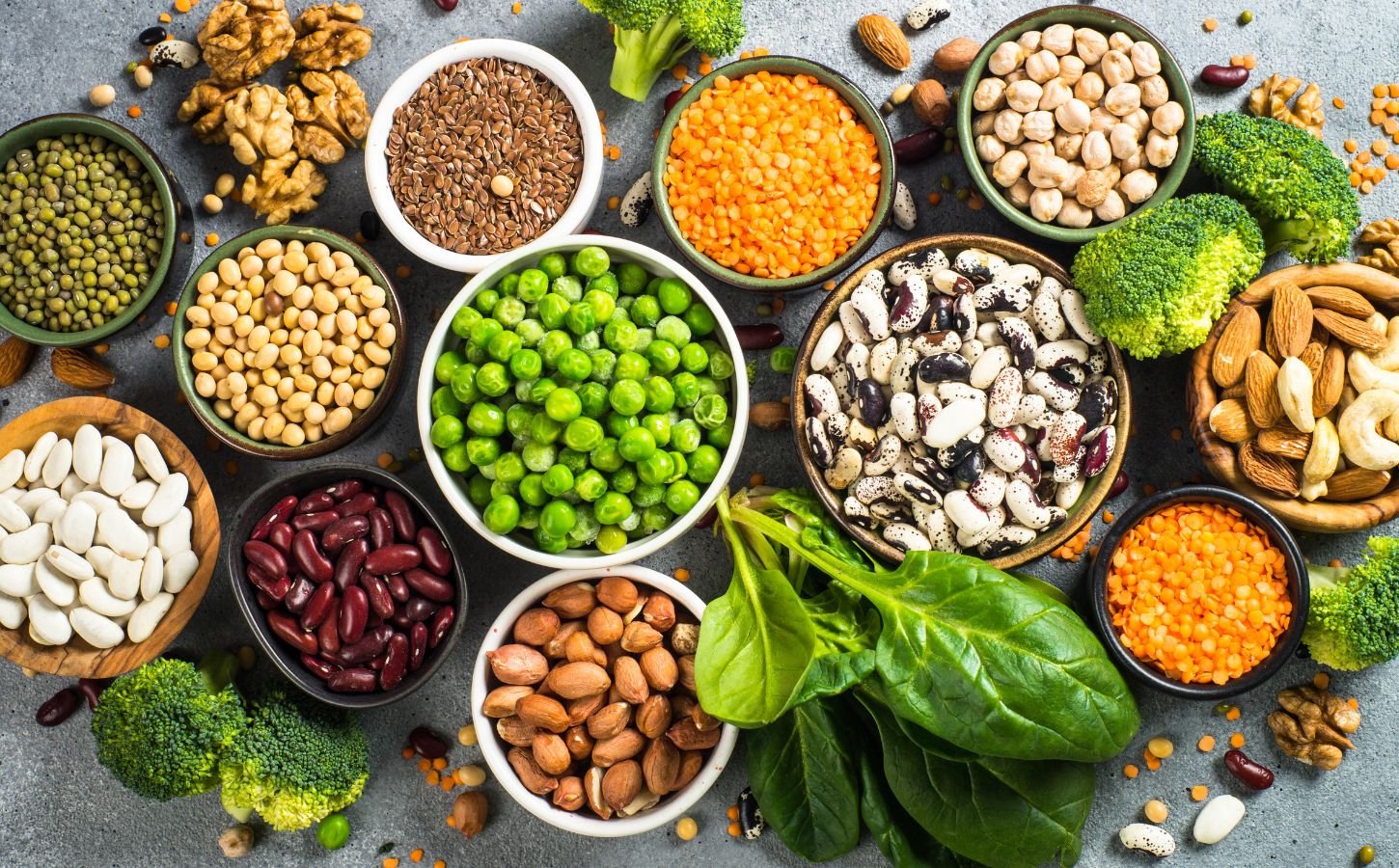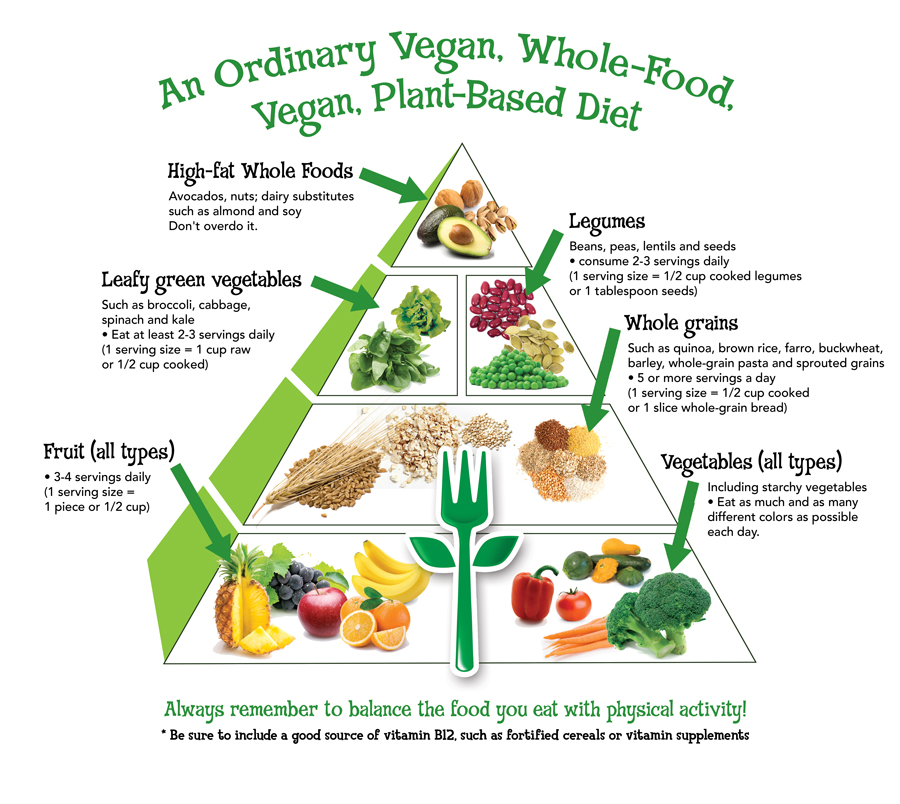5 Creative Plant Based Chicken Dishes That Go Beyond the Basics
5 Creative Plant Based Chicken Dishes That Go Beyond the Basics
Blog Article
Everything About Healthy And Balanced Food: Benefits of Enjoying Plant Based Options
The discussion surrounding plant-based diets has gotten considerable interest over the last few years. Numerous individuals are checking out the potential health advantages, dietary benefits, and ecological effects related to these dietary choices. As people come to be a lot more familiar with their food's influence on health and sustainability, inquiries develop regarding the functionalities of embracing such a lifestyle. What details adjustments can one anticipate, and exactly how might these choices improve not just individual health and wellness but additionally the world's future?
Comprehending Plant-Based Diet Plans
Although many individuals link plant-based diet regimens mostly with vegetarianism or veganism, these diet plans can encompass a large range of eating patterns that prioritize entire, minimally refined plant foods. Such diets frequently consist of fruits, vegetables, entire grains, seeds, vegetables, and nuts, while limiting or removing pet items. This versatility allows individuals to customize their nutritional selections according to personal preferences and dietary needs. Some may take on a mostly plant-based diet while still sometimes consuming meat or milk, commonly described as a flexitarian method. The emphasis continues to be on incorporating even more plant foods, which can bring about a diverse range of flavors and meals. Comprehending these various interpretations of plant-based eating is necessary for valuing its availability and charm in contemporary food society.
Health Conveniences of Plant-Based Foods
The wellness advantages of plant-based foods are significant, offering a nutrient density benefit that sustains overall wellness. Research study suggests that these foods can boost heart health and play a vital function in efficient weight administration. By integrating more plant-based choices, individuals may improve their nutritional selections and advertise lasting wellness.
Nutrient Thickness Benefit
Nutrient thickness plays a crucial duty in the health advantages of plant-based foods, making them an engaging selection for those looking for a balanced diet plan. Plant-based foods, such as fruits, vegetables, legumes, nuts, and entire grains, are usually rich in vital vitamins, minerals, and antioxidants while being lower in calories. This high nutrient thickness enables individuals to eat less calories while still satisfying their nutritional requirements. Additionally, these foods are packed with nutritional fiber, promoting digestive system health and wellness and helping in weight administration. By integrating nutrient-dense plant-based alternatives, consumers can enhance their total health and wellness, sustain their immune systems, and lower the danger of chronic diseases. Eventually, the nutrient thickness of plant-based foods highlights their significance in a health-conscious way of life.
Heart Health Renovation

Weight Management Assistance
In enhancement to promoting heart wellness, a plant-based diet regimen can substantially help in weight management. This nutritional strategy emphasizes entire foods such as fruits, vegetables, vegetables, nuts, and whole grains, which are generally lower in calories and greater in fiber compared to animal-based products. The high fiber material aids boost satiety, minimizing total calorie intake. Plant-based diet regimens are usually abundant in important nutrients while low in unhealthy fats, making it less complicated to maintain a healthy and balanced weight. Study shows that people who embrace a plant-based way of living often tend to have lower body mass indexes (BMIs) and experience more effective fat burning contrasted to those that consume meat-heavy diet plans. Accepting plant-based alternatives is a critical choice for efficient weight administration.
Nutritional Worth of Plant-Based Ingredients
Plant-based ingredients are rich in vital nutrients, offering a diverse variety of vitamins, minerals, and anti-oxidants that add to total health. A comparison of protein sources exposes that while animal items are frequently viewed as exceptional, numerous plant-based choices offer ample healthy protein and other useful compounds. Comprehending the nutritional worth of these ingredients can help individuals make informed dietary selections.
Crucial Nutrients in Plants
Nutrient-rich active ingredients located in plants offer a diverse selection of crucial vitamins and minerals that contribute significantly to overall health. These ingredients are abundant in vitamins A, C, and K, which sustain immune feature, vision, and blood clot, respectively. Additionally, plants give crucial minerals such as potassium, magnesium, and calcium, crucial for heart wellness, muscle mass feature, and bone toughness. The visibility of fiber in plant-based foods aids food digestion and advertises a healthy gut microbiome. Anti-oxidants, discovered abundantly in vegetables and fruits, help fight oxidative anxiety and reduce swelling. Numerous plant foods are low in calories yet high in nutrients, making them a superb choice for those seeking to keep a healthy weight while making sure ideal nutrient intake.

Contrasting Healthy Protein Resources
Protein sources differ significantly in their nutritional profiles, with plant-based active ingredients supplying unique advantages. Unlike animal healthy proteins, which usually have hydrogenated fats and cholesterol, click here now plant proteins often tend to be reduced in these unhealthy components. Legumes, nuts, seeds, and whole grains are rich in essential amino acids, fiber, vitamins, and minerals. For example, lentils supply high protein web content alongside significant iron and folate, while quinoa is a full protein, offering all 9 crucial amino acids. In addition, plant-based healthy proteins are often gone along with by antioxidants and phytochemicals that sustain general wellness. The change to plant-based protein sources not only improves dietary consumption however likewise lines up with lasting dietary techniques, reducing ecological influence and promoting long-lasting health advantages.
Environmental Influence of Plant-Based Eating
As understanding of environment adjustment grows, lots of individuals are checking out lasting dietary selections that can significantly decrease their environmental footprint. Plant-based eating has actually emerged as a considerable factor to reducing greenhouse gas exhausts, which are mainly connected with animals manufacturing. The cultivation of fruits, veggies, legumes, and grains commonly calls for fewer resources, such as water and land, compared to pet farming. Additionally, plant-based diet regimens can cause reduced logging, as much less land is needed for grazing animals or growing animal feed. By moving in the direction of plant-based options, customers can support biodiversity and promote much healthier ecological communities. Overall, welcoming plant-based consuming not only benefits personal health but additionally stands for a vital action towards ecological sustainability and preservation initiatives.
Conquering Common Misconceptions
While several individuals identify the advantages of a plant-based diet plan, numerous misunderstandings often deter them from totally embracing this lifestyle. An usual idea is that plant-based diet plans lack enough healthy protein; nevertheless, countless plant resources, such as beans, nuts, and tofu, offer adequate protein. In addition, some assume that this diet plan is expensive, when actually, staples like beans, rice, and seasonal veggies can be rather affordable. Another misunderstanding is that plant-based eating is excessively limiting, whereas it really provides a diverse variety of flavors and foods. Lots of worry that a plant-based diet regimen may lead to deficiencies, yet with appropriate planning, people can obtain all essential nutrients, including vitamins and minerals, while taking pleasure in a vast range of scrumptious meals. Vast Tips for Transitioning to a Plant-Based Way of living
Making the shift to a plant-based lifestyle can be an enhancing experience, though it frequently calls for some guidance to browse the initial changes. People are urged to begin slowly, integrating more fruits, vegetables, legumes, and entire grains right into their meals while decreasing meat and milk intake. Dish preparation is vital; preparing an once a week menu can assist reduce the adjustment and stop last-minute harmful choices. Checking out brand-new recipes and cooking techniques can additionally enhance the experience and keep enjoyment about plant-based consuming. Furthermore, signing up with assistance groups or communities can offer motivation and share useful ideas. Lastly, staying notified concerning nourishment warranties balanced meals, preventing shortages while promoting a healthy, enjoyable plant-based way of life.
Delicious Plant-Based Dish Ideas
Checking out tasty plant-based dish ideas can influence people to welcome a more nourishing diet. One popular choice is a hearty quinoa salad, including cherry tomatoes, cucumber, and a tangy lemon-tahini dressing. Another fave is a full-flavored lentil stew, packed with carrots, celery, and aromatic natural herbs, excellent for a comforting supper. For breakfast, overnight oats made with almond milk, chia seeds, and topped with fresh berries give a nourishing beginning to the day. Furthermore, a vivid vegetable stir-fry with tofu and a range of vivid veggies can be a quick yet satisfying dish. Finally, velvety avocado salute on whole-grain bread, sprinkled with seeds and spices, supplies a straightforward yet flavorful treat. These dishes display the range and richness of plant-based eating.

Frequently Asked Concerns
Can a Plant-Based Diet Regimen Offer Enough Protein?
The concern of whether a plant-based diet plan can provide enough healthy protein prevails. Countless resources, including legumes, nuts, seeds, and whole grains, can meet protein needs properly, supporting a healthy and balanced diet plan for individuals.
Are Plant-Based Diets Ideal for Children?
The viability of plant-based diets for youngsters depends on careful planning. Ample nutrients must be assured, including minerals, vitamins, and proteins. With proper support, such diet regimens can sustain healthy and balanced growth and advancement in children.
Just how Do I Eat in restaurants on a Plant-Based Diet plan?
Eating in restaurants on a plant-based diet plan involves looking for restaurants with diverse food selections, requesting for adjustments, and checking out vegan-friendly options. Preparation in advance and connecting dietary choices can improve the eating experience while preserving dietary options.
What Are Usual Allergens in Plant-Based Foods?
Common irritants in plant-based foods consist of soy, gluten, nuts, and seeds - important link BBQ Sauces. Individuals adhering to a plant-based diet regimen must know these allergens and review labels very carefully to stay clear of negative responses and ensure secure usage
Can Plant-Based Diets Help With Weight Reduction?
Research study suggests that adopting a plant-based diet might help with fat burning due to its typically reduced calorie density this website and higher fiber content. This mix can boost satiation, aiding people handle their calorie intake properly. Numerous people associate plant-based diets primarily with vegetarianism or veganism, these diets can incorporate a large variety of consuming patterns that prioritize whole, minimally processed plant foods. Nutrient density plays an essential duty in the health and wellness advantages of plant-based foods, making them an engaging option for those looking for a well balanced diet. Plant-based diets have been revealed to significantly boost heart health and wellness, as they typically have components that support cardiovascular function. In addition to promoting heart health and wellness, a plant-based diet regimen can substantially assist in weight monitoring. An usual idea is that plant-based diet plans lack sufficient protein; however, countless plant sources, such as vegetables, nuts, and tofu, provide sufficient healthy protein.
Report this page